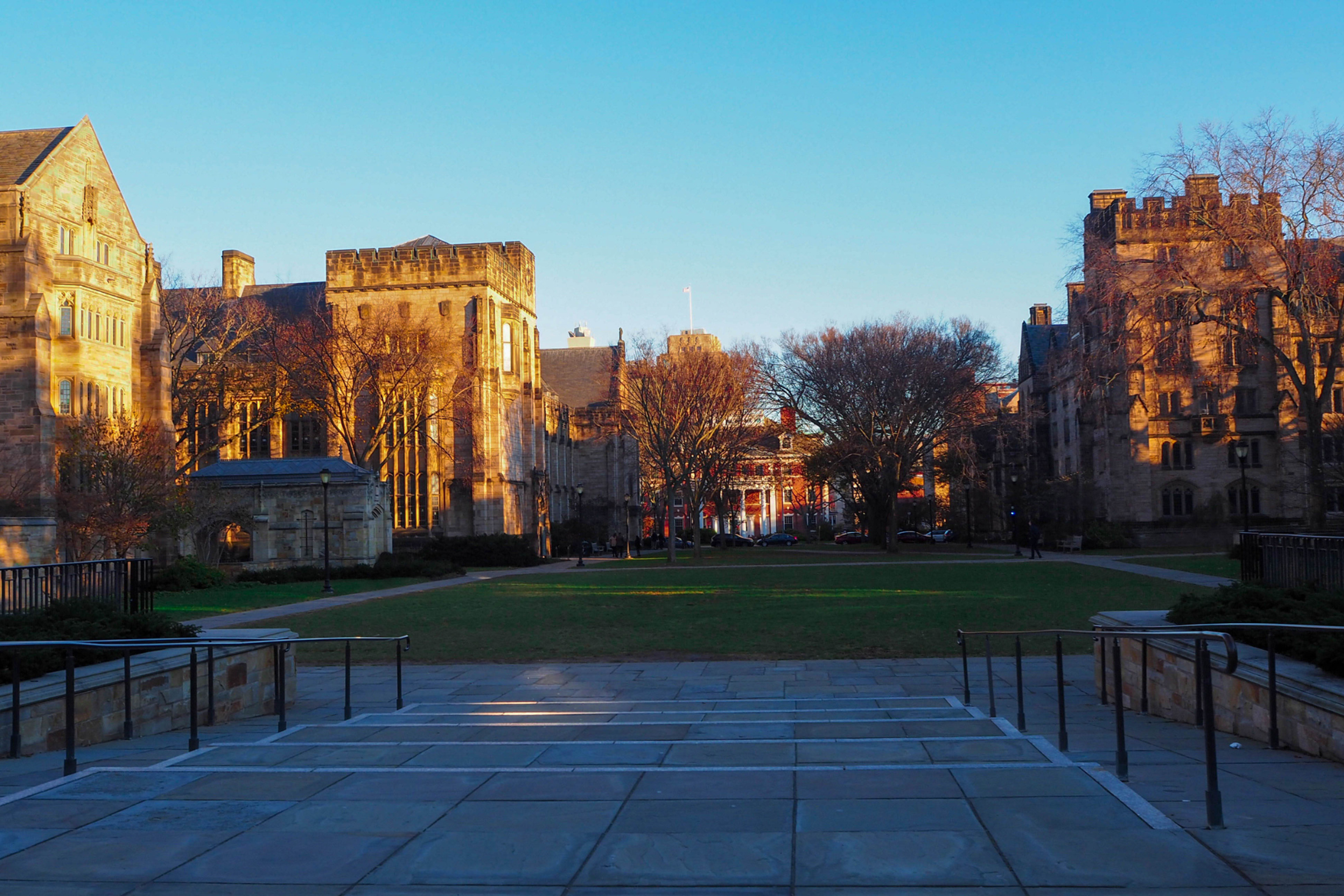Harvard Medical School: Tuition & Fees Breakdown
Discover the comprehensive breakdown of tuition and fees at Harvard Medical School in this informative article.
Posted March 6, 2025

Table of Contents
Attending Harvard Medical School is a dream for many aspiring medical professionals. However, the cost of tuition and fees can be a significant factor when considering this prestigious institution. In this article, we will provide a comprehensive breakdown of the costs associated with attending Harvard Medical School, compare them with other medical programs, explore financial aid and scholarship opportunities, and offer advice on planning your medical school budget. Additionally, we will discuss the long-term financial impact of attending Harvard Medical School.
Tuition and Fees Breakdown at Harvard Medical School
Harvard Medical School is renowned for its world-class education, but it comes at a price. As of the 2024-2025 academic year, the total cost of attendance, including tuition, fees, and health insurance depends on Harvard Medical School's curricular track: Pathways and HST.
Cost of Attendance 2024-2025 - Year 1, Class of 2028 (Pathways)
- Tuition: $71,032
- Mandatory fees: $2,189
- Health insurance fee: $4,202
- Loan fees: $250
- Living expenses: $30,465
Cost of Attendance 2024-2025 - Year 1, Class of 2028 (HST)
- Tuition: $71,032
- Mandatory fees: $2,189
- Health insurance fee: $4,202
- Loan fees: $268
- Living expenses: $32,103
Breaking down the cost further, tuition alone amounts to $71,032. In addition to tuition, there are various fees that students are required to pay. These fees cover resources provided by the institution, such as books, course materials, supplies, and equipment. For Pathways, The fees for these resources stand at $3,500 – that includes a black bag diagnostic equipment of $750. On the other hand, the resource materials for HST only cost $2,689.
Attending Harvard Medical School is not just an investment in education, but also an opportunity to be part of a vibrant and diverse community of medical professionals. The school's faculty is composed of renowned experts in their respective fields, who are dedicated to providing students with a comprehensive and rigorous education. Students have access to state-of-the-art facilities, cutting-edge research opportunities, and a vast network of alumni who have made significant contributions to the field of medicine.
While the cost of attending Harvard Medical School may seem daunting, it is important to consider the long-term benefits and opportunities it provides. Graduates from Harvard Medical School are highly sought after by prestigious hospitals, research institutions, and healthcare organizations around the world. The education and training received at Harvard Medical School lay a solid foundation for a successful career in medicine, with graduates often going on to become leaders in their respective specialties.
Financial aid is available to help offset the cost of attending Harvard Medical School. The school offers a range of scholarships, grants, and loans to eligible students. Additionally, students may be able to secure external scholarships or participate in work-study programs to further reduce their financial burden. It is important for prospective students to thoroughly explore all available options and reach out to the school's financial aid office for guidance and support.
Harvard Medical School is committed to ensuring that financial constraints do not hinder talented individuals from pursuing a career in medicine. The school's financial aid office works closely with students to develop personalized financial plans that take into account their unique circumstances. They provide resources and guidance on navigating the financial aid process, including assistance with completing applications, understanding loan terms, and exploring alternative funding sources.
Harvard's Costs Compared with Other Programs
While Harvard Medical School is known for its high academic standards and rigorous curriculum, it is not the only option for aspiring medical professionals. It is essential to consider the costs associated with other reputable medical programs.
When comparing Harvard's costs with other programs, it is crucial to look at the total cost of attendance, including tuition, fees, and living expenses. Some medical schools may have lower tuition fees but higher living costs in their respective locations. It is also important to consider the quality of education and opportunities available at each institution when making comparisons.
One notable program to consider is the Johns Hopkins University School of Medicine. Located in Baltimore, Maryland, Johns Hopkins is renowned for its cutting-edge research and innovative medical education. While Harvard and Johns Hopkins are both prestigious institutions, their costs differ. The tuition alone for the 2024-2025 academic year at Johns Hopkins University School of Medicine is $64,600.
While this is lower than Harvard's tuition, it is important to note that living expenses in Baltimore may vary from those in Boston. The cost of housing, transportation, and other daily expenses can significantly impact the overall cost of attending Johns Hopkins.
Another program worth considering is the Stanford University School of Medicine. Located in Stanford, California, this institution offers a unique learning environment and access to world-class faculty. Based on the Stanford Medicine's website, the full tuition for the 2022-2023 academic year was $84,996 for 4 quarters. Similar to the other programs, additional fees and living expenses must be taken into account when calculating the total cost of attendance.
When comparing Harvard, Johns Hopkins, and Stanford, it is important to consider the financial aid and scholarship opportunities available at each institution. Scholarships, grants, and loans can help alleviate the financial burden of attending medical school. It is advisable to research and explore the various financial aid options offered by each program.
It is essential to consider the educational and research opportunities available at each institution. Harvard Medical School, for example, has a strong emphasis on research and offers numerous research opportunities for students. Johns Hopkins University School of Medicine is known for its groundbreaking research in various medical fields, including cancer, neurology, and cardiology. Stanford University School of Medicine also boasts a robust research program and provides students with the chance to collaborate with renowned faculty members.
Related topic: Cheapest Medical Schools in US: Your Guide to Affordable Medical Education
Financial Aid and Scholarship Opportunities
Harvard Medical School understands the financial burden that the cost of attendance may present to students and offers various financial aid and scholarship opportunities to help alleviate this.
The school provides need-based financial aid, and the amount awarded varies depending on individual circumstances. To be considered for financial aid, students must complete the Free Application for Federal Student Aid (FAFSA) and the Harvard Medical School Financial Aid Application (HMSFAA). These applications help assess a student's eligibility for scholarships, grants, and loans.
Harvard Medical School is committed to ensuring that no student is denied an education due to financial constraints. The financial aid office works closely with students to create a comprehensive financial plan that meets their needs. They understand that medical school can be a significant investment and strive to make it accessible to all deserving students.
Additionally, the school offers a range of scholarships based on merit and need. These scholarships can significantly reduce the financial burden for deserving students. The scholarships are awarded based on academic achievements, leadership potential, and extracurricular involvement. Prospective applicants are encouraged to explore the scholarships offered by the school and their eligibility criteria.
Harvard Medical School also provides information and resources on external scholarship opportunities. These external scholarships are offered by various organizations, foundations, and corporations to support students pursuing a medical education. The financial aid office assists students in identifying and applying for these external scholarships, further expanding the financial aid options available.
Harvard Medical School believes that financial barriers should not hinder talented individuals from pursuing a career in medicine. They are committed to making medical education accessible and affordable, ensuring that students can focus on their studies and training without undue financial stress.
It is important for prospective students to thoroughly research and understand the financial aid and scholarship opportunities available to them. Harvard Medical School's financial aid office is available to answer any questions and provide guidance throughout the application process. They are dedicated to helping students navigate the complex world of financial aid, ensuring that every student has the opportunity to succeed.
How to Plan Your Medical School Budget
When considering attending Harvard Medical School or any other medical program, it is essential to plan your budget carefully. The cost of attendance is more than just tuition and fees; it also includes living expenses, textbooks, equipment, and other necessities.
Creating a budget involves estimating your income, whether it's from financial aid, scholarships, part-time jobs, or personal savings. It is crucial to consider expenses such as housing, transportation, food, textbooks, and healthcare. By accurately estimating your income and expenses, you can make informed decisions about managing your finances during medical school.
Read: Med School Scholarships: A Comprehensive Resource Guide
Long-Term Financial Impact
Attending Harvard Medical School is a considerable investment, both in terms of time and money. While the cost of attendance may seem daunting, it is important to consider the potential long-term financial impact of obtaining an education from such a prestigious institution.
Harvard Medical School graduates often have access to excellent opportunities in their medical careers. Higher earning potential and career advancement may help offset the initial financial burden. However, it is essential to research the average salaries and job prospects in your desired field to gain a realistic understanding of the potential financial outcomes.
While the cost of attending Harvard Medical School is undoubtedly significant, it is an investment in your future as a medical professional. By carefully considering the tuition and fees breakdown, exploring financial aid and scholarship opportunities, and planning your budget, you can make an informed decision about pursuing your medical education at this prestigious institution.
Read these next:












